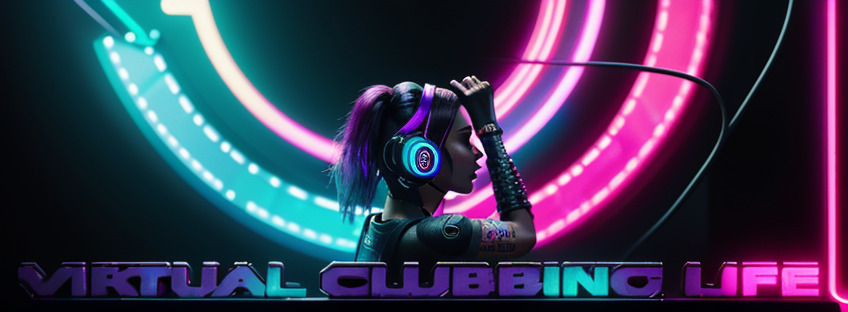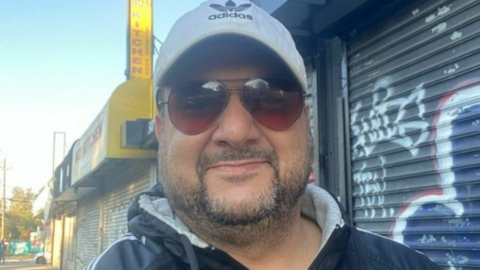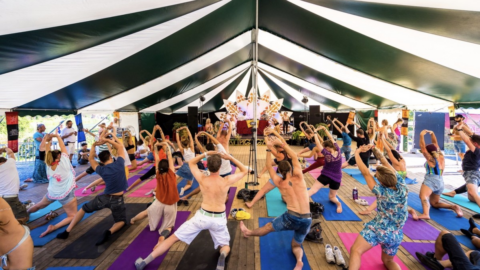Colin Ferguson
Shambhala is influencing public health on and off the dancefloor.
Between 1964 and 1975, an estimated 40,000 Americans crossed the border illegally into Canada, mostly to dodge the threat of being drafted to the military and the fear of combat in the Vietnam war.
Some came due to the threat of imprisonment as President Nixon declared the "war on drugs" and addressed drug use as "public enemy #1." A significant portion of these "draft dodgers" came to find a new home and Canadian diaspora in the Kootenay region of British Columbia and the central hub in the town of Nelson, per BC: An Untold History.
The historic past and culture of challenging the definition of war and reducing harm is still very much alive in the Kootenay region. Shambhala Music Festival’s harm reduction culture and programs are a timely testament.
EDM.com sat down with Chloe Sage, Team Lead with Shambhala's ANKORS program, to learn about advances in drug checking, legalization and how the festival is influencing public health at large and the "war on drugs" off the dancefloor.
c/o Chloe Sage
EDM.com: How long has the harm reduction program at Shambhala been in operation?
Chloe Sage: It started in 2004.
EDM.com: What inspired the need?
Chloe Sage: Shambhala started as a very small local festival. When it started to get big, one of the founding family members that started the event called ANKORS asking for assistance.
ANKORS came as an invited organization and started offering drug checking. The drug supply at that time in the rave scene was really unpredictable. ANKORS had observed the U.S. harm reduction organization DanceSafe doing drug checking. DanceSafe kind of pioneered the drug checking movement in North America but it’s been really hard for them to move forward because they have the Rave Act in the states.
EDM.com: What is the Rave Act?
Chloe Sage: The Rave Act bans any kind of harm reduction at raves in the U.S. They can’t legally offer supplies, education or any information about drug use.
Harm reduction organizations and advocates in the U.S. have long histories of literally throw backpacks over fences at raves to help people drug check and offer education. It’s been a very incognito movement in the U.S, but policies are changing very rapidly now.
Here in Canada, there’s no Rave Act.
Shambhala is also on private land, which has given additional autonomy and freedom to experiment, practice, learn and evolve over the years. We’ve grown from a team of four to a team of 70.
Shambhala Music Festival.
403 A B C
EDM.com: Can you explain the history and science of drug checking at Shambhala?
Chloe Sage: Up until 2018, we only had access to reagent testing. Reagent testing is a process where a chemical is dropped on a sample. The color change provides a "yes" or "no" answer to predict what the substance is.
Due to the toxic drug poisoning opioid crisis, we wanted to bring in better technology to drug check.
We found a U.K. organization called We Are the Loop who were using FTIR technology and wanted to adopt it. FTIR testing technology tells the main ingredients of the substance, sometimes up to four parts, and how much of each part.
Shambhala supported an ANKORS Go Fund Me campaign for two years to help raise funding to bring FTIR drug checking to the festival. Most of the funding was donated by the Shambhala Music Festival organization and passionate year-over-year festival attendees.
We first launched FTIR testing in 2018, and it’s been an incredible improvement. Now, we can say this may be partly of what you think it is, but it also has some other things in it as well. This more detailed testing allows us to offer better education about potential expectations when using mixed substances.
EDM.com: Knowledge is power.
Chloe Sage: Indeed. Strip samples are also collected to test for fentanyl and benzos. When tricky substances are delivered that we can’t properly identify, they are forwarded to Health Canada’s toxicology lab in Vancouver for further analysis.
EDM.com: What are the other pillars of harm reduction outside of drug checking service that ANKORS provides?
Chloe Sage: Reducing the stigma of drug use through education and awareness is a big one. In 2004, people weren’t able to get information about using drugs anywhere. It was really important for us to deliver realistic and factual information that they could go away with and make better informed choices.
EDM.com: It’s very important work. History has told us that alcohol prohibition in the 1920s didn’t work. When substance use is stigmatized and pushed underground, the more potential for poisoned supplies exists. Do you think that this model for drug checking should extend outside of the electronic dance music scene?
Chloe Sage: Drug checking started in the electronic dance music scene, for sure. In 2016, when the public health emergency was declared in B.C. around the opioid crisis, this motivated the larger public health industry to recognize the positive impact that drug checking has on broader community health in reducing deaths and overdoses outside of festivals.
Attendees relax at Shambhala Music Festival.
Jarett Lopez
EDM.com: Was the 2016 public health emergency the opioid or fentanyl crisis that was reported widely in mainstream media across Canada?
Chloe Sage: Yes. We call it a toxic drug poisoning crisis. It’s not an overdose crisis. Overdose means you took too much.
When it comes to having a supply in the illegal drug market that’s contaminated, it doesn’t matter how much you take. It’s poisoned.
The DJ says she was asleep at home when the suspects violently "kicked the front door in."
Her name is Kavi and she's got an adorable studio setup featuring a drum pad, DAW, synthesizer and more.
Pfirter has launched a GoFundMe fundraiser to replace the stolen gear, which includes a Roland SH-101 synthesizer and two Apple MacBook laptops.
The public health emergency of poisoned drugs is why drug checking has started to move out of the EDM scene and into community settings. Now, it’s really exciting actually.
This is the first year at Shambhala that we have a lot of drug checking technicians that are coming from community drug checking projects across the country. They are coming here to learn about the different drug samples they can test and bring new knowledge back to their communities.
EDM.com: That’s so inspiring that Canadian advances in drug checking and harm reduction started here first. We have also learned that medical researchers and academics have joined in support.
Chloe Sage: Yes. Silvina Mema, British Columbia’s Medical Health Officer for Interior Health, has played a huge role in helping us legalize our efforts. She has believed in the idea of this work and has helped legitimize it. Before, we couldn’t manipulate samples. It wasn’t legal for us to touch it. Now, we have legal approval from Health Canada and the province of B.C. to touch samples and do more intensive testing.
EDM.com: Times sure have changed, haven’t they?
Chloe Sage: When we first started testing drugs at Shambhala we didn’t even put a sign out. It was all word of mouth, because we were worried about getting arrested. Now, everything we do is legal.
EDM.com: The lineup at the ANKORS booth is always long. How do you advertise your services?
Chloe Sage: It’s still mostly word of mouth.
EDM.com: Have you been in contact with any other festivals or provinces that have been watching and learning from your model?
Chloe Sage: Yes. We were just at Bass Coast a few weeks ago. We have been there for three years, and it’s still pretty new for them, but it’s been great. There are other organizations in B.C. that have been doing drug checking at different festivals.
Also, across the country there are new drug checking projects that are coming here to learn. For example, there are two groups here from Quebec that do drug checking out of a mobile van at festivals. They are called GRIP Montreal and ELIXER. There are many others from universities and health regions. I can’t remember all of their names!
EDM.com: You now have a team of 70. What is the background experience required to volunteer?
Chloe Sage: We have a very diverse group. A lot of us have lived experience using substances. That experience helps.
EDM.com: Would you call yourselves "rave moms and dads" or—better yet—"rave aunts and uncles"?
Chloe Sage: We call ourselves "drug nerds." We are the dork side that prevent people from going to the dark side and having traumatic experiences with drugs. We are the nerds that are into the chemistry of it all.
EDM.com: You’re the scientists, right?
Chloe Sage: Some people on our team have no professional experience, but a lot of lived experience and are passionate about harm reduction. Others are in healthcare or work in community welfare. It’s a huge mix of people sharing their knowledge with each other.
EDM.com: What other pillars are involved in harm reduction? Can you speak to sexual health, taking vitamins and knowing how to lean on support systems? The world of harm reduction is so broad.
Chloe Sage: It is very broad. Here at Shambhala what we’ve tried to do is have linking rings or a hub of care. There are many spokes to the harm reduction wheel that are led by Stacy Lock, Harm Reduction Director at Shambhala.
Having a safe space for women and diverse genders is really important. Assaults do happen, and we want to end that. Consent culture education is a really important piece of harm reduction.
We also want to help people dose properly. GHB is really popular and the most common cause of overdose at Shambhala. We give out 5ml barrels so people can dose themselves properly and don’t end up in medical.
Another spoke of the wheel is having a sober camp to show people that they can engage in this culture without needing to use substances.
We also have an overdose prevention site. It’s the second year running. People can use, get Naloxone-trained and use safely under supervision. Ultimately, we don’t want people using alone in the porta-potties or their tents.
EDM.com: Yes. If people want to use, do it smart.
Chloe Sage: Yes. Don’t use alone.
EDM.com: Another spoke of the wheel of harm reduction is "The Sanctuary," correct?
Chloe Sage: Yes. The Sanctuary offers support for those that need to temporarily escape the excitement of the rave.
Most that arrive at The Sanctuary are seeking support because they took a mix of drugs that’s having a negative effect on them but they aren’t having a medical emergency. Some are dealing with mental health issues or just having a hard time. It diverts traffic from medical. Sometimes people just need a place to rest and chill out, and not be in medical looking at someone being treated for a bloody broken leg.
EDM.com: We recently discovered the concept of the Red Tent in The Sanctuary at the Wicked Woods Music Festival. The Red Tent in a Sanctuary is a place for women to escape "big dick energy."
Chloe Sage: Yes, there is a Red Tent here that is reserved only for women to take a timeout.
In 2022, ANKORS administered 3,300 drug tests. You can find out more about the program here.
Website: shambhalamusicfestival.com
Facebook: facebook.com/shambhalamusicfestival
Twitter: twitter.com/shambhala_mf
Instagram: instagram.com/shambhala_mf
YouTube: youtube.com/user/ShambhalaMusicFest
Spotify: spoti.fi/3KIQ3SP
Sign up for the latest news, exclusive giveaways & more.
The nation’s leading electronic music festival organizer teamed up with End Overdose to combat the opioid epidemic.
“The overdose crisis has been inflicting pain and heartache on our city for too long, so now is the time to take action,” said Mayor Eric Adams.
The promise of dancing together is on the horizon—but the safety of festival-goers has never been more dubious.
The Founder of Shambhala Music Festival unpacks the secrets of his exceptional Canadian wonderland.
Whether you’re a veteran or new to the farm, here are 10 experiences not to miss out on at Shambhala.
Although they have always been precise and user-friendly, these lifesaving guides are now as transparent as possible so anyone can understand and use them correctly.
Hosted by End Overdose and Restless Nites, the March 10th event will offer free fentanyl test strips.
A statement shared by organizers cited “too many unknowns right now.”













